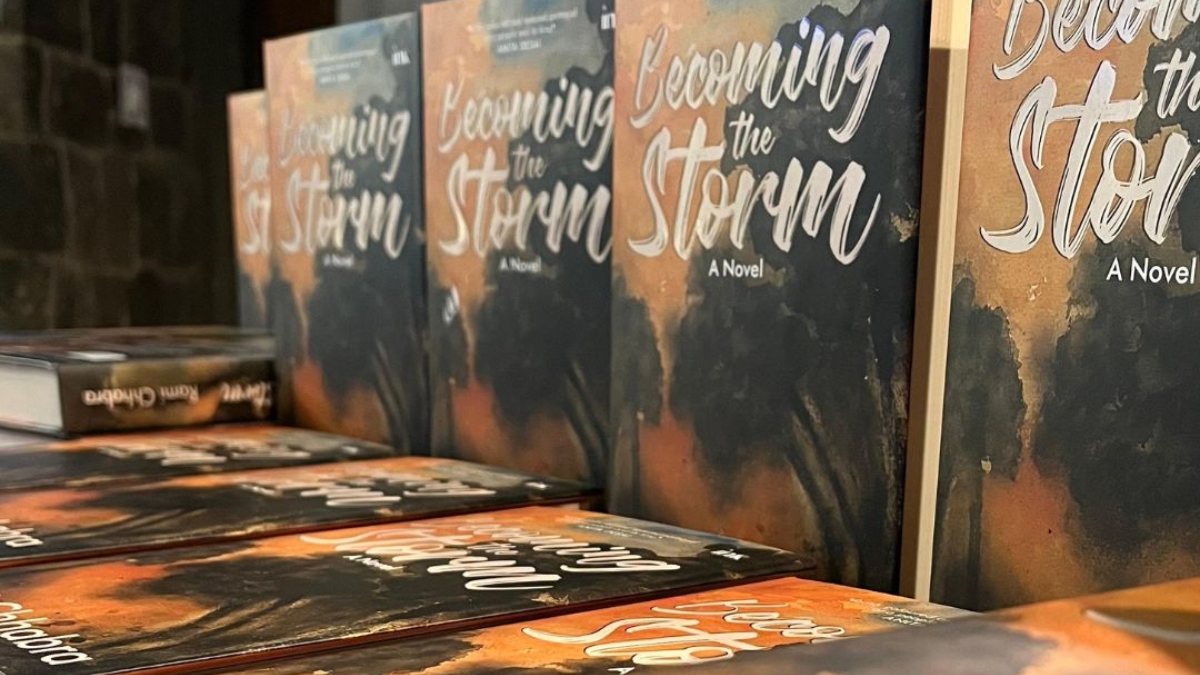Winds of Change: A Reflective Look at Rami Chhabra’s 'Becoming the Storm'
 Rami Chhabra’s 'Becoming the Storm'
Rami Chhabra’s 'Becoming the Storm'
Rami Chhabra’s debut fictional novel 'Becoming the Storm' is a masterfully crafted narrative that captures the zeitgeist of post-independence India while telling a deeply personal story of female empowerment and resilience. Set against the backdrop of 1950s and 1960s Delhi, the novel weaves together themes of tradition, modernity, personal autonomy, and societal transformation through the compelling journey of its protagonist, Indu.
At sixteen, Indu stands at the crossroads between the security of familial expectations and the intoxicating promise of personal freedom. Her mother, Rano, enforces strict adherence to custom, urging Indu to fulfil her destiny as a dutiful wife. However, the mystic’s warning about marrying too young haunts her, hinting that such a path could extinguish her dreams.
Little did the young, innocent, naïve, and inexperienced-in-life Indu know that Bajewala Sant’s predictions for her would come true:
…there are two karmic turning points ahead of you in life… Don’t marry at eighteen, whatever you do. That relationship is fraught with karmic dukh no matter how hard you work at it! It is the karmic destiny, karmic sorrow. Marry at twenty-two and your karma will be entirely different—a smooth life always. Remember my words. (p 56)
This tension between aspirations and obligations fuels the novel, shaping Indu’s decisions as she navigates tradition’s formidable weight. When Indu falls for the charismatic Ashok Madan, ignoring a mystic’s warning about marrying too young, her story takes a turn that mirrors the experiences of countless women of her generation. Chhabra masterfully depicts how Indu’s romantic dreams dissolve into the harsh reality of a traditional household where her ambitions are dismissed, and her husband’s initial charm gives way to indifference.
What sets this novel apart is its sophisticated handling of the parallel between personal and national transformation. As India grapples with modernization and change, Indu’s struggle becomes a microcosm of the larger societal shifts taking place. The author deftly explores how issues such as early marriage, dowry demands, and domestic violence—themes that unfortunately remain relevant today—affected women’s lives during this pivotal period.
Chhabra’s prose is particularly effective in capturing the emotional landscape of her characters. Drawing from her extensive experience in media and women’s movements, she creates authentic, multi-dimensional characters whose struggles feel deeply personal yet universally relevant. The author’s background lends credibility and depth to her portrayal of women’s issues, making the narrative both compelling and authentic.
The novel’s climax, centred around Indu’s letter to Ashok, is particularly powerful. This intimate act symbolizes her awakening, a declaration that her dreams and grievances demand acknowledgement. By voicing her doubts, Indu challenges the silence often imposed on wives and daughters. It represents not just a personal turning point but a broader statement about women’s agency and the possibility of change. The open-ended nature of their potential reconciliation reflects the ongoing nature of social transformation and personal growth.
'Becoming the Storm' is more than just a coming-of-age story or a critique of traditional social structures. It is a testimony to the enduring spirit of those who dare to challenge the status quo. The novel succeeds both as a historical document of a crucial period in Indian history and as a contemporary commentary on gender relations and personal autonomy.
Ultimately, 'Becoming the Storm' stands as an exploration of resilience, identity, and societal change. Chhabra’s nuanced depiction of Indu’s hardships offers insight into an era in Indian history. Her dedication to women who challenge oppressive norms, and to the men who support them, underscores the collaborative nature of progress. Readers seeking historical fiction, narratives, or a tale of self-discovery will find plenty to admire. Indu’s voice endures as an inspiring testament to courage and hope.
(Priyanka Misra is a publishing consultant based in New Delhi, with over a couple of decades of experience in the industry)
Books Review